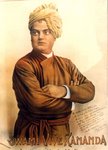Everywhere in this universe, in one respect man's condition is the same. No matter how vastly different he may be in the outer appearance of his life, different countries, different races, different cultures, different languages, different ways of living, eating, dressing, etc., he may be completely different in all of these aspects, but there is one thing that is the same to all human individuals. And it is this factor that binds them into a global unity. If analyzed, it will be discovered that all humanity is engaged ceaselessly, day after day, from the cradle to the grave, only in trying to avoid painful experiences and in trying to attain that which gives them happiness.
Yet, beloved seeker let me ask you this one very important question. Since the time of creation, is there one single individual who has been born onto this earth that can stand up boldly and declare, "In my life I have never experienced any sorrow or pain or suffering whatsoever. My whole life has been a life full of joy, full of happiness, full of bliss". You will find that there is not even one single individual on earth who has not had at some time or another some type of pain or suffering or grief or sorrow.
This is a world of pain and sorrow. With a few minutes thoughtful reflection you will see that this is so. Many painful experiences are brought about by natural forces beyond our control-floods, earthquakes, tidal waves, cyclones, fires, famines. Then there is suffering brought about by other forms of life-germs, microbes, bacteria, viruses, insects, reptiles, animals. But by far the greatest source of suffering is caused by man himself. It is suffering that is self-created, that arises within our own psychological self due to desire and attachment for worldly objects- love and hate, anger and passion, fear, worry, tension, anxiety, jealousy, envy, greed, frustration, disappointment, disillusionment, the sorrow of separation, bereavement, and all other varieties of restlessness of mind due to our multitude of desires.
Everyone thinks happiness is to be found in objects and experiences. Everyone thinks, "If I could only attain certain objects, if I could only possess them, if I could experience them, I will get happiness." In spite of countless disappointments and disillusionment, man never learns.
There is not an iota of happiness in earthly objects. No object is perfect. They do not have in them the power or ability to give you lasting happiness or joy because they are finite and they are imperfect. Otherwise, they must be able to give a homogeneous state of happiness to all beings at all times under all conditions. But what do you actually see? If you like milk and you take a glass full of sweetened milk flavored with spices; the first glass may give you satisfaction. And if you are pressed upon to take another glass, the second glass may give satisfaction, but it is not the same degree of happiness or pleasure as was the first glass. And if your stomach is already full with two glasses of milk, if you try to take a third glass of milk, it becomes unpleasant & undesirable. And if a fourth glass of milk is forced fed on you, it produces nausea and you will have to throw it up.
Where then is real happiness? If milk had in it the power of giving happiness, it must be able to grant you this happiness at all times, under all conditions. It cannot change its nature. Such examples show that all experiences derived from the contact of senses with their respective sense-objects ultimately are experiences that end in disappointment.
Does happiness really rest in the World tour that seems impossible? Or can you find happiness in a little walk down the lane, hand in hand with the love of your life? Yes, just as unbelievable it sounds; it is true that most people in this world WAIT for happiness like they wait to catch the next train. We wait for big things to happen in life and forget the small little packages of joy that come our way. We seem to forget all those wonderful things that we possess and continually crib about what is beyond reach. It is appropriate to look at the advice of the Great Teacher Lord Krishna when he said: "O Arjuna, all these experiences, brought about by the contact of one or other of the five senses with their respective sense objects, are ultimately the source of sorrow. There is no real happiness in these sense contacts and sense experiences. They are but mere momentary sensations producing pain."
Moral:
Even the most mundane things in life can become the most beautiful experiences if viewed in a different perspective, if tackled differently. In simple words, it is the Attitude that brings you happiness in most cases than the actual object of joy. Making best of life's situations, being content with what you have are sure ways to everlasting happiness. One does not need to chase happiness then, it will come and perch itself in your life like a beautiful butterfly.


